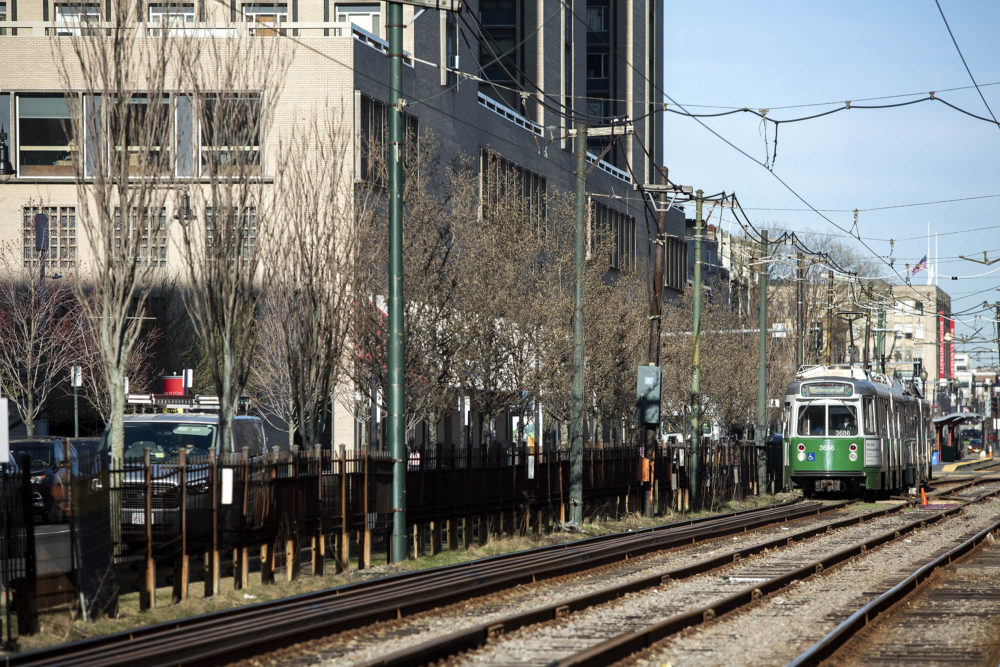Grounded In Science, Climate Researchers Are Rethinking How Often They Fly

Trees line the Green Line tracks on Commonwealth Avenue. (Robin Lubbock/WBUR)
Boston University biology professor Pamela Templer is a real-life Lorax. She studies the effects of climate change on trees across New England: from the White Mountains of New Hampshire to the Harvard Forest in central Massachusetts, and in urban areas like the campus at Boston University along Commonwealth Avenue.
“I love working with trees,” Templer said. “I mean, if you look at them, it’s like looking at history.”
History, in this case, is a small, leafless hardwood tree. It looks like it might blow over if a good gust of wind struck it just right. But according to a small silver band wrapped around the tree to measure its trunk size, this one is actually growing pretty fast.
Researchers believe warmer temperatures are making trees in cities grow at much faster rates than trees in rural areas.
But heat, overall, isn’t a good thing. Even though Templer described New England’s trees as “hearty” and “resilient,” the rising temperatures are damaging them. Warmer winters are shrinking snowpack in forests, changing soil dynamics, and impairing certain species’ ability to do things like make maple syrup.
Read the rest of the story at WBUR’s website.
